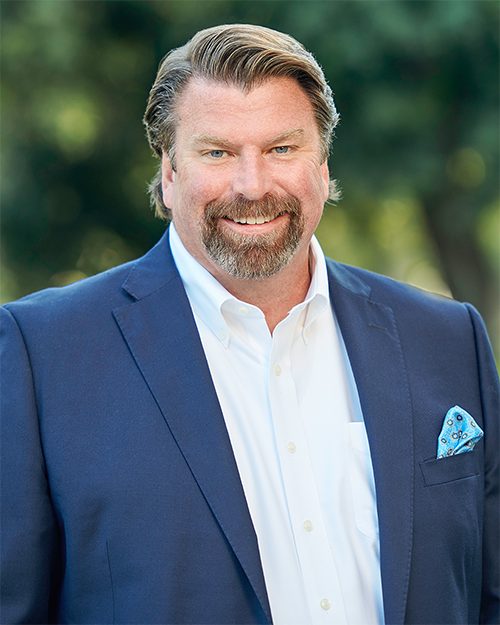Ringing in the New Year
As we slowly emerge from the pandemic, we are beginning to see a bright spot in the future of the life sciences industry and wider global economy. From what I can gather, there is a collective and anticipatory sigh of relief that this will all be behind us soon. Instead of my traditional end-of-year industry recap on performance, searches, and the life sciences sector, I wanted to focus on how companies successfully survived the pandemic and what key takeaways we can apply to the future in 2022.
Since the pandemic hit all organizations at the same time, there was no blueprint for dealing with it. We all know that culture is at the heart of every organization, so what did successful companies do to maintain their culture during the past 21 months in a virtual world? I wanted to gain a deeper understanding and firsthand perspective of what the real keys to success were for companies that survived the pandemic, so I spoke with two of my colleagues, James Corbett, Chairman of the Board of Directors for Alumned LLC and Alucent LLC, and Wa’el Hashad, Chief Executive Officer of Avanir Pharmaceuticals.
When I spoke with Wa’el, he noted that maintaining high engagement, increased retention, and a strong culture was tied very closely to his senior leadership team. Wa’el said, “The alignment between our senior leadership team was very strong and we were supporting each other and the mission about what we were trying to accomplish — which was the balance between achieving business goals, and taking care of employees. We were able to coalesce the leadership team around this common goal, and as a result, we were able to achieve our business goals by the end of the year. I was very fortunate to have a strong set of leaders in place with amazing critical thinking, problem solving, and great leadership skills. Empathy, communication, and support are what helped us maintain a high degree of engagement and culture and ultimately survive all of this.”
The pandemic made it easier for teams to be remote, and this trend will continue well into the future. However, the biggest challenge in the future of a hybrid workforce will be retaining this talent remotely. In my conversation with James, he mentioned: “We can, as a business society, come to a clear consensus and belief about what should be enduring after all of this. Moving forward, what should be different is to care about your people, care about your culture, and care about what’s going to make your company thrive, but in that order. All employees (remote or in person) will get a bigger voice in the future than they’ve had in the past, and this will drive success across the board.”
Key Learnings Going Forward Into 2022
Within my conversations with James and Wa’el, we discussed politics, economics, inflation, supply chain, the Great Resignation, and more, but here are the key takeaways that life sciences companies will need to build a solid cultural foundation for a post-pandemic workforce and economy.

Aligned and Connected Leadership Teams Rooted in Mission and Values
The emphasis on excellent communication skills internally and externally will be critical. The best cultural leaders will speak from the heart, keep communication lines open, and visibly balance business goals with employee well-being.

Shared Common Goals and Objectives
Great leaders lead by example and share common goals with their direct reports and wider teams. Let employees know and understand some challenges the business faces by disclosing goals, objectives, and results transparently. Highly engaged employees and leaders will need to understand the “why” behind their work and contributions in order to become high performers.

Empathy and Understanding Employee Needs
In the age of the Great Resignation where talent is incredibly scarce, organizations must be able to both attract and retain great leaders. Understanding the needs of your employees through engagement surveys, focus groups, etc., is critical to creating retention strategies that resonate and work. The pandemic equalized most organizations in terms of perks and benefits and shifted the focus to paying closer attention to supporting the person behind the “employee.” This trend will remain a strong motivator and key benefit for teams and talent in the future.

Start With a New Approach to Hiring Leaders
When I spoke with Wa’el he said, “When I hire leaders, I don’t pay a lot of attention to whether the person checks all the boxes from experience. I look at whether they have amazing leadership qualities, critical thinking, and problem solving skills.” I couldn’t agree more with this. When I am engaged by a company to recruit and appoint executive-level talent, I always advise clients to weigh fit and leadership capabilities more heavily than past company pedigree. Great leaders have the right skill sets to lead (even during a pandemic) regardless of where they have worked.

Provide Non-Compensation Benefits Such as Coaching
Professional development and coaching will be key to driving employee engagement and development. Teams, especially more junior-level employees, have lost nearly two years of professional development and mentorship opportunities. Employees that just came out of college need guidance, they need coaching, and they need to learn from observation. Implement a coaching program to re-engage teams and employees at every level with a revised curriculum that teaches critical thinking and problem solving. Employee development will be more crucial, expensive, and strategically important — especially in a hybrid or remote workforce.
At the end of my talks with James and Wa’el, I was curious about what they thought the bright spot or silver lining was from the past 21 months. For both, it came down to people and collaboration. James said, “I think the biggest thing that’s going to come out of the pandemic is sort of how employers get either rewarded or penalized for how they treat their employees — and I think that’s a big deal. It will be an interesting time for years to come.”
On the other hand, Wa’el said, “You know what the bright spot is? I survived. We survived this COVID situation. I think that the whole COVID-19 vaccine development is good proof of what collaboration, alignment, and efficiency can bring to society. A lot of diseases and patients have unmet needs and we still have an opportunity to make a difference in people’s lives.”
Jake Vander Zanden
Partner
(949) 541-5000
jake@mbexec.com
Jake Vander Zanden serves as a Partner and leader of McDermott + Bull’s Technology Life Sciences Practice.
Jake spent over 25 years as a turnaround and growth leader completing business transformations as a senior executive at companies like Allergan, Medtronic, and more. He has lived and worked throughout Asia, Africa, and Europe, and managed businesses in all the major regions of the world. Jake’s success has come from his ability to quickly and continuously develop high performing teams and guide their achievement of company changing initiatives, regardless of country, language, culture, or product group.
ABOUT MCDERMOTT + BULL
McDermott + Bull is leading the way in transforming executive search services worldwide, one relationship at a time. With experienced principals in the United States, Canada, and Europe, M+B has become the trusted retained search advisor for empowering change on behalf of private and public companies, private equity firms, and their operating companies. Leveraging deep vertical experience, innovative thinking, and proven time-saving methodologies, the company challenges the norm and thrives in the recruitment of difficult-to-find, culture critical VP to C-Suite executive talent.



